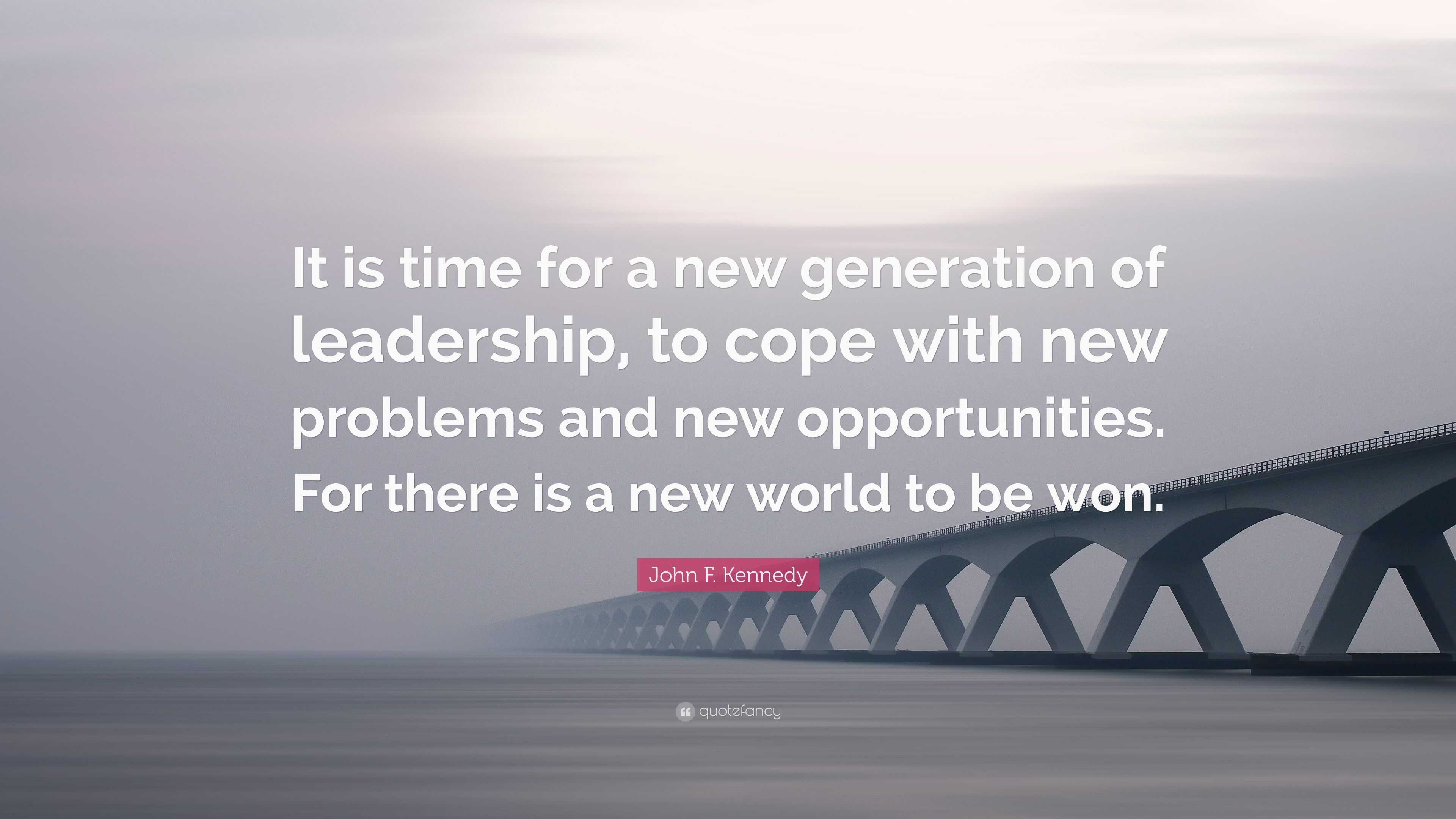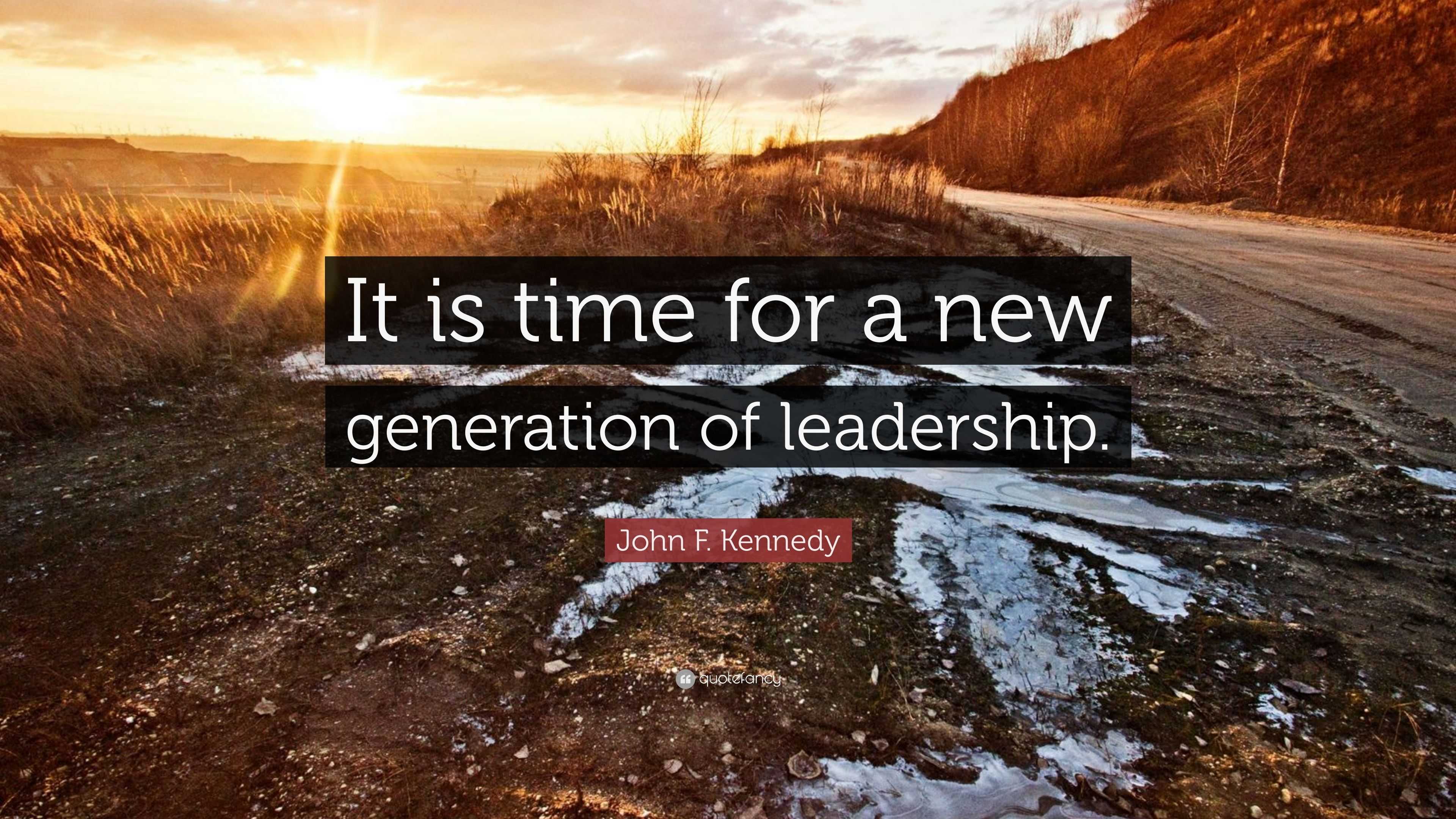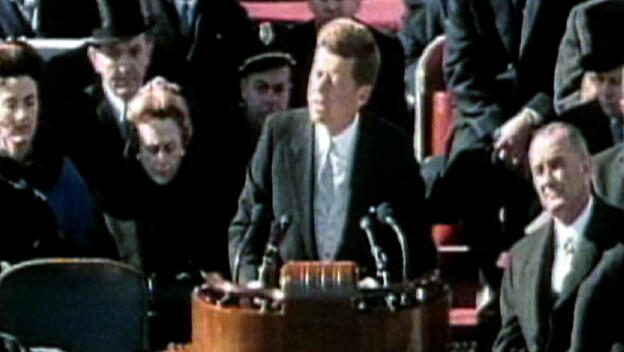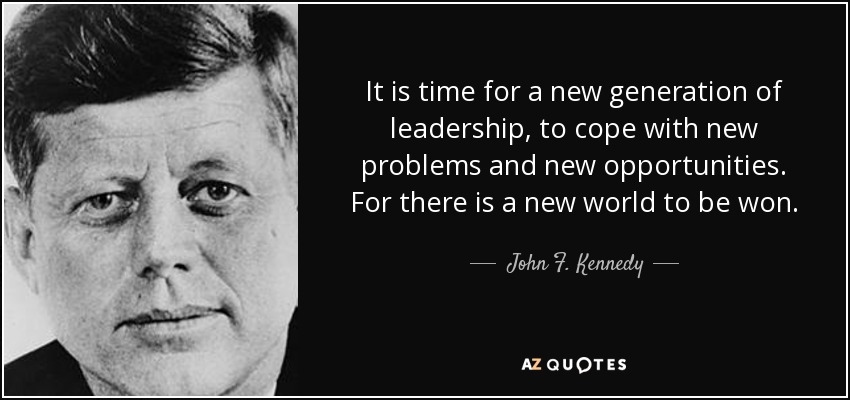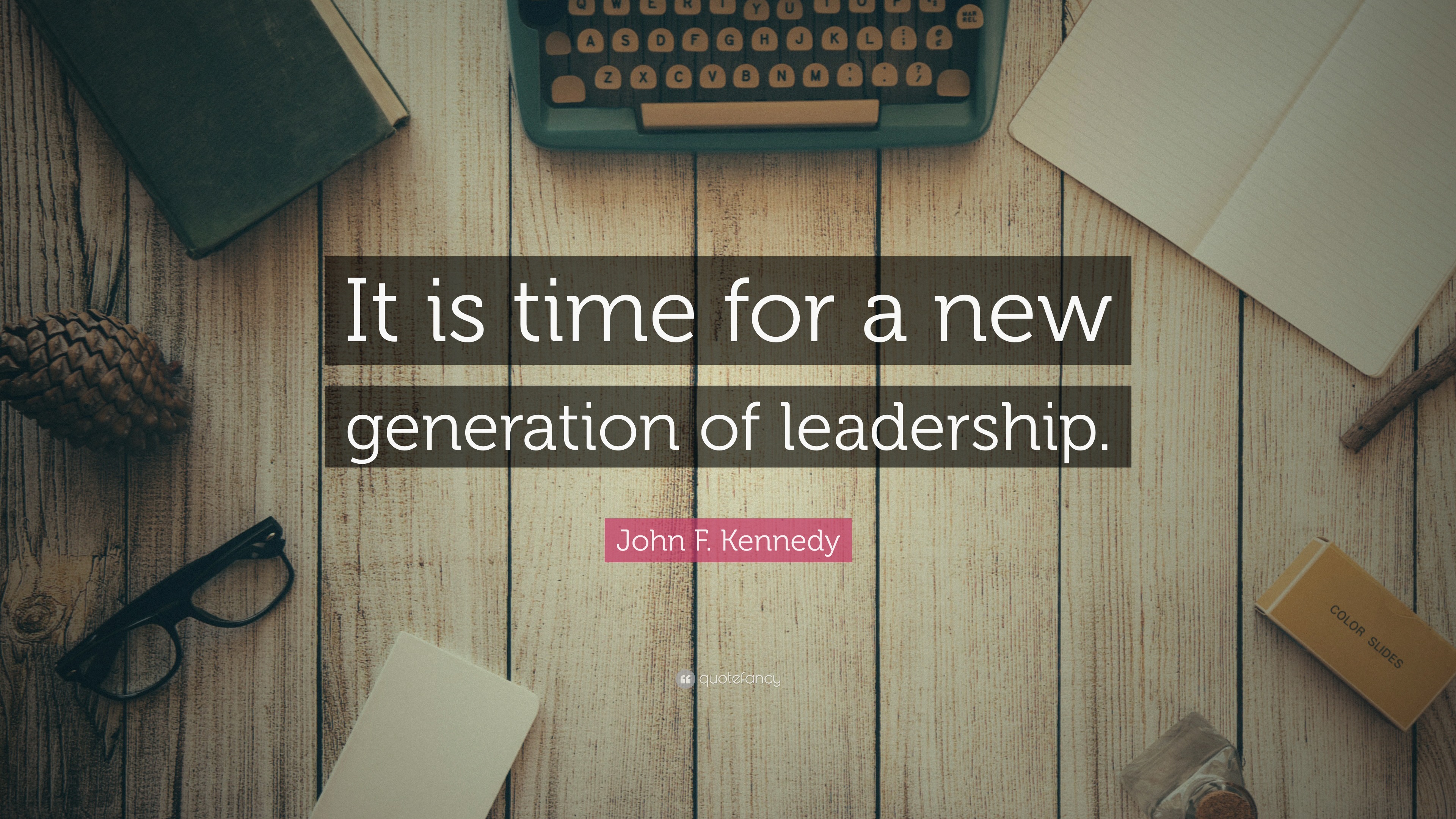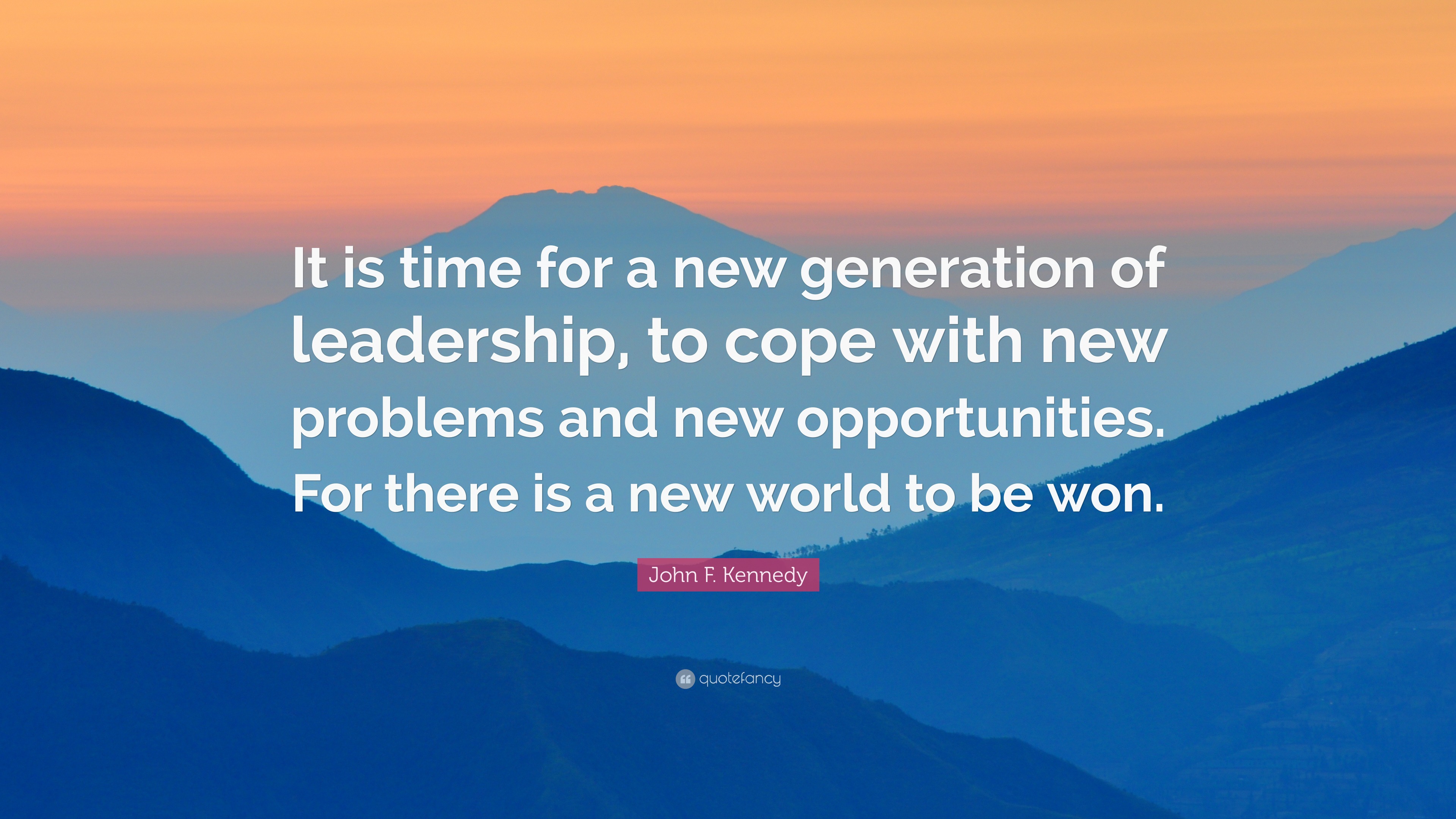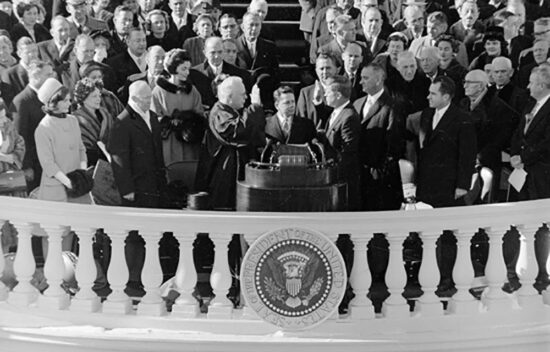John F. Kennedy, also known as JFK, was the 35th President of the United States and was inaugurated in 1961. He was a member of the Democratic Party and was the youngest person ever to be elected as President at the age of 43. JFK was known for his charisma and ability to inspire and mobilize the American people, particularly the younger generation.
One of the key themes of JFK's presidency was the idea of a "New Frontier," which represented a new era of progress and opportunity for the United States. JFK believed that this new era could be achieved through a combination of technological innovation, economic growth, and social justice. He also believed that the United States had a moral obligation to lead the world in these endeavors and to serve as a beacon of freedom and democracy.
JFK's call to action resonated with the younger generation in particular, who were eager to play a role in shaping the future of their country. Many young people were drawn to JFK's vision of a brighter future and were inspired by his call to serve their country through public service and civic engagement.
JFK's presidency was also marked by a number of significant events and initiatives that had a lasting impact on the country and the world. One of the most notable of these was the Civil Rights Act of 1964, which prohibited discrimination on the basis of race, color, religion, sex, or national origin. This act, which was signed into law by President Lyndon B. Johnson following JFK's assassination, had a profound impact on the rights and opportunities of African Americans and other minority groups in the United States.
In addition to his domestic accomplishments, JFK also played a crucial role in shaping American foreign policy during a time of great global tension. He faced a number of challenges during his presidency, including the Cold War with the Soviet Union and the Cuban Missile Crisis, which brought the world to the brink of nuclear war. Despite these challenges, JFK was able to navigate these crises with skill and determination, ultimately helping to defuse tensions and prevent further escalation.
Overall, JFK's presidency was a time of great change and progress for the United States, and his impact on the younger generation was significant. His vision for a brighter future and his call to action inspired a generation of young people to get involved in shaping the direction of their country and to work towards a more just and equitable society.
